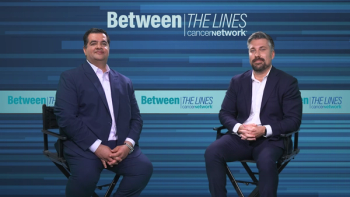SEQUOIA Arm C (Zanubrutinib for Del[17p] Treatment-Naive [TN]-CLL/SLL) and Arm D (Zanubrutinib + Venetoclax for TN-CLL/SLL)

Experts discuss the critical role of biomarker testing in guiding frontline treatment decisions for chronic lymphocytic leukemia (CLL)—especially in high-risk patients with TP53 mutations or deletion 17p—and highlight promising 5-year outcomes from the SEQUOIA trial, which supports targeted monotherapy as an effective alternative to chemoimmunotherapy in this population.

Experts discuss how the SEQUOIA trial reinforces Bruton tyrosine kinase (BTK) inhibitor monotherapy as an effective frontline treatment for patients with chronic lymphocytic leukemia (CLL) with deletion 17p, showing progression-free survival (PFS) rates comparable to those without high-risk mutations, and highlighting that second-generation BTK inhibitors can overcome historically poor prognoses without added benefit from anti-CD20 antibodies.

Experts discuss the promising results of a SEQUOIA trial substudy evaluating Bruton tyrosine kinase (BTK) inhibitor plus venetoclax combination therapy in patients with chronic lymphocytic leukemia (CLL)—including those with TP53 mutations or deletion 17p—highlighting high progression-free survival (PFS), deep minimal residual disease (MRD)-driven remissions, and strong safety outcomes that support this doublet as a flexible, effective frontline option for high-risk disease.

Experts discuss the growing role of time-limited Bruton tyrosine kinase (BTK) inhibitor plus venetoclax therapy for high-risk chronic lymphocytic leukemia (CLL)—particularly in patients with deletion 17p—emphasizing the SEQUOIA R&D data that support flexible, minimal residual disease (MRD)-guided treatment durations and all-oral regimens as effective, convenient, and patient-centered options for achieving deep, durable responses.

Experts discuss how second-generation Bruton tyrosine kinase (BTK) inhibitors have enhanced chronic lymphocytic leukemia (CLL) management by offering improved tolerability and flexible dosing strategies that allow personalized, long-term therapy with manageable adverse effects and effective toxicity mitigation, thereby maintaining disease control while preserving patients’ quality of life.

Results from arms C and D of the phase 3 SEQUOIA trial demonstrated that zanubrutinib alone or in combination with venetoclax yields positive results in CLL/SLL subpopulations.



